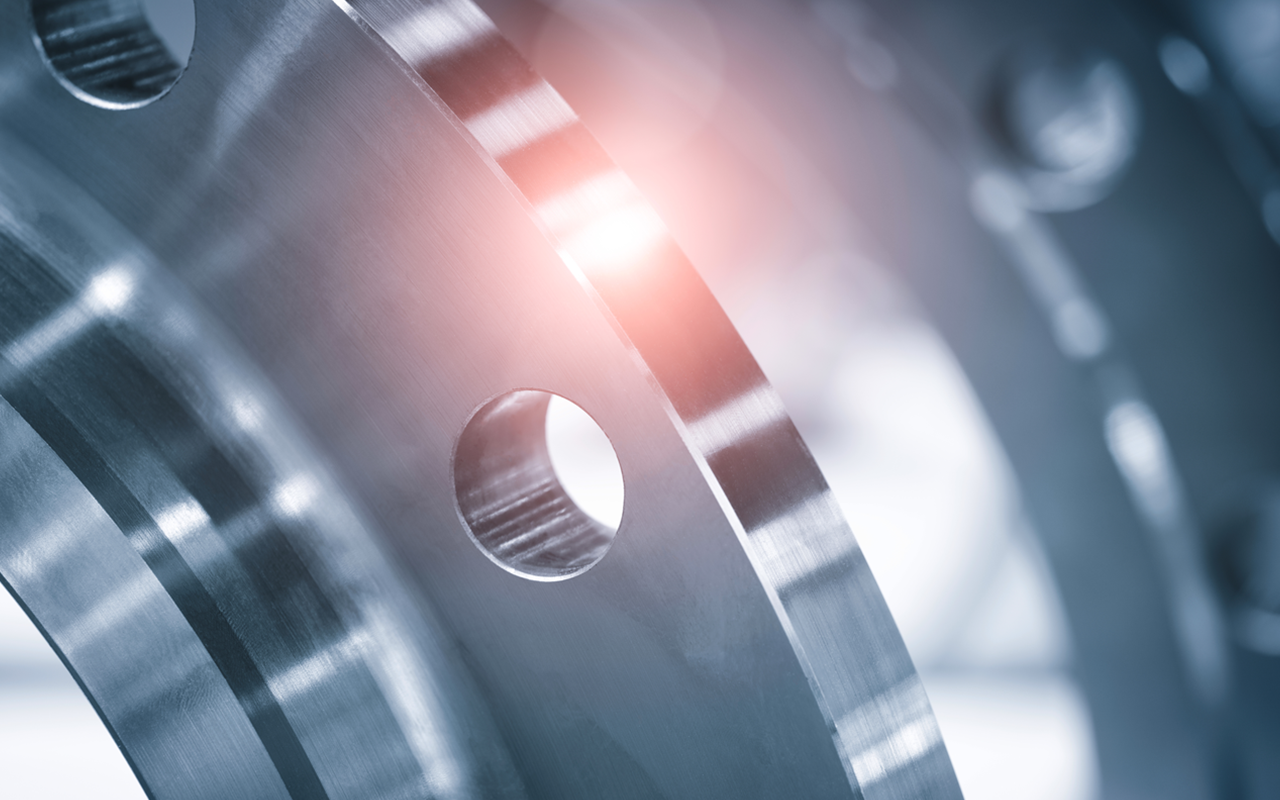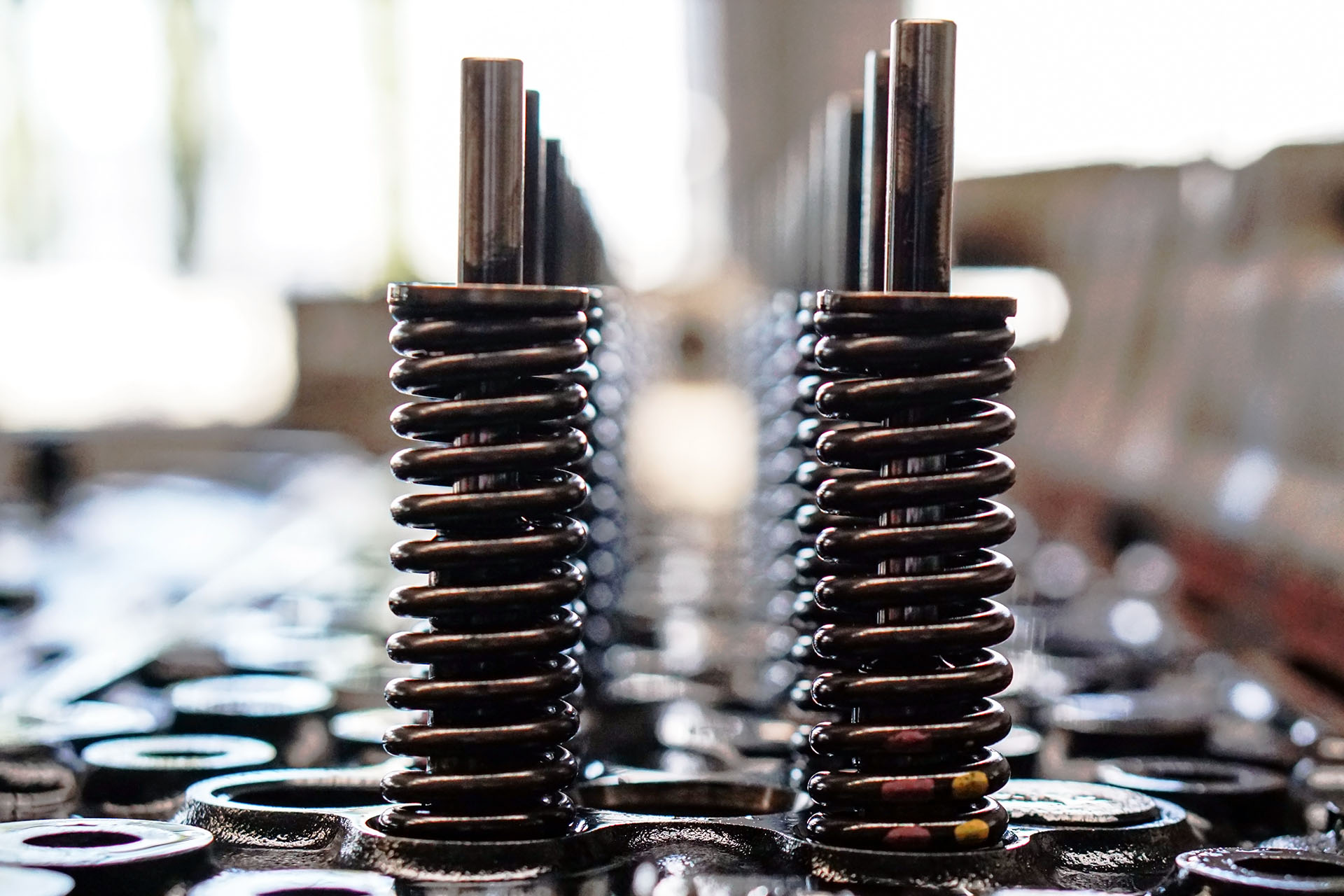Eddy Current Testing for Welded and Seamless Tube Integrity
Have you ever wondered how oil is brought to the surface from deep underground, or how an airplane’s hydraulic system holds steady during landing? Many industries utilize hollow, cylindrical components, typically made from metals such as steel, stainless steel, aluminum, or copper, called tubes.
Tubes are everywhere in modern industry. They are designed for strength, dimensional accuracy, and reliable performance in demanding applications. The two primary types of tubes are welded and seamless.
Welded tubes are formed by rolling a flat metal strip into shape and then welding the seam. While having a seam makes this type of tube cost-effective and scalable, it also means the weld seam can be a potential weak spot if not carefully inspected. Seamless tubes are manufactured by piercing a solid billet to create a hollow cylinder. They offer uniform structure and high performance, though defects can still develop during the piercing and rolling process.
The Advancing Standards Transforming Markets (ASTM), European Norm (EN), and American Petroleum Institute (API) provide strict standards to ensure tubes can perform under high pressures, extreme temperatures, and corrosive environments. That is why catching defects is critical. Incorporating eddy current non-destructive testing (NDT) steps into production processes is a proven and indispensable solution.
Types of Defects in Welded and Seamless Tubes
If tubes are so critical to industries like oil and gas, automotive, aerospace, and power generation, why is ensuring their integrity so important during production? The answer is simple. Even small flaws can become big problems once tubes are in service.
Common Defects in Welded Tubes
Welded tubes are efficient to produce and widely used, but the weld seam is often the most vulnerable area. Manufacturers and inspectors frequently deal with:
- Scarfing-Related Cracks and Ridges: Worn or misaligned tooling can leave ridges that act as crack initiation points, often hidden until the tube is pressurized in service.
- Porosity and Inclusions: Gas entrapment or contamination during welding creates voids or non-metallic inclusions that weaken the weld seam.
- Lack of Fusion or Incomplete Penetration: Welding parameters may appear correct visually, but still result in weak seams that fail under stress.
- Misalignment and Undercut: Poor strip alignment produces thin weld walls or undercut defects that compromise durability.
Together, these weld-related flaws pose a serious risk of leaks, bursts, or early failures once tubes are placed under pressure in the field.
Common Defects in Seamless Tubes
Seamless tubes remove the weld seam but introduce their own challenges. Typical issues include:
- Surface Cracks and Laps: Rolling can fold material onto itself, creating stress concentrators.
- Laminations: Nonmetallic inclusions in the billet elongate during rolling, forming planar flaws that reduce strength.
- Internal Voids and Eccentricity: Piercing and elongation sometimes leave hidden voids or variations in wall thickness.
- Overheating and Scale: Excessive heat forms scale on the tube surface, which can mask cracks during visual inspection.
These seamless tube defects often reduce strength, create hidden weak spots, and can cause catastrophic failures in high-pressure or high-temperature applications.
For mills, these types of defects are not only technical issues, but also create scrap, rework, costly downtime, and dissatisfied customers.
Why Is Eddy Current Testing Essential in Tube Mills?
So, how do you detect these defects before tubes reach customers? Traditional destructive testing only samples a few tubes per lot, leaving room for costly surprises. NDT using eddy current provides continuous, real-time, 100% inspection without damaging the product.
Eddy current inspection is trusted across tube mills worldwide because it offers:
- High sensitivity to surface and near-surface flaws such as cracks, laps, porosity, and inclusions.
- Non-contact, high-speed testing that keeps up with modern production lines.
- Flexibility for both welded and seamless tubes, with encircling coils that scan the full circumference and segment coils that target weld seams.
Early defect detection prevents small flaws from multiplying downstream, saving both time and money.
By integrating eddy current testing into production processes, mills not only adhere to compliance standards but also strengthen their reputation for delivering reliable products.
Precision Eddy Current Testing Solutions
With the addition of PRÜFTECHNIK NDT, FOERSTER brings together decades of shared knowledge and a complementary product portfolio to deliver the most complete range of eddy current testing solutions on the market. Our inspection technology, combined with our expertise, is a valuable resource for customers as they tackle every inspection challenge from simple weld seam testing to complex multi-sensor, high-speed applications with precision and confidence.
Together, our systems deliver:
- Inline, automated inspection that keeps pace with modern production lines.
- Early defect detection to minimize scrap, rework, and downtime.
- Adaptability across tube sizes and materials through a wide range of coils and modular system designs.
- Future-ready testing infrastructure with scalable architecture, network integration, and access to real-time and archived test data.
- Proven global performance, with solutions trusted across energy, automotive, aerospace, and power generation industries.
With FOERSTER’s expanded capabilities and the combined expertise of PRÜFTECHNIK NDT, mills can confidently detect defects in both welded and seamless tubes, ensuring product integrity and safeguarding their reputation in demanding markets.

Segment Coils for Targeted Weld Seam Inspection
When weld integrity is critical, segment coils provide precise, localized inspection along the seam. This makes them especially effective for detecting flaws such as lack of fusion, porosity, or incomplete penetration—issues that are often hidden from the naked eye. By isolating the seam area, segment coils allow mills to verify weld quality without disrupting production speeds.
FOERSTER’s molded segment coils are specifically designed for weld seam testing and are available in sizes ranging from 10 mm to 500 mm. This flexibility ensures coverage for a wide variety of tube dimensions and applications.
- LSM segment coil yoke: Optimized for ferromagnetic tubes, with adjustable magnetization strength to match the test requirements.
- LSP segment coil yoke: Offers lower magnetization strength, making it a practical choice for less demanding applications.
- 4710 Segment Coil Holder: Ideal for PRÜFTECHNIK NDT applications with wall thicknesses up to ¼ inch, providing stable performance and accurate weld seam inspection.
- 4810 Segment Coil Holder: Engineered for PRÜFTECHNIK NDT systems testing wall thicknesses up to ½ inch, delivering reliable detection even in thicker-walled tubes.
Encircling Coils for Complete Tube Coverage
For applications where the entire tube body must be inspected, encircling coils deliver full circumferential coverage. As tubes move through the line, these coils identify both surface and near-surface flaws, including cracks, laps, and inclusions. In seamless tube production, encircling coils are particularly effective at detecting billet- or rolling-related defects early, before they progress downstream.

FOERSTER offers one of the broadest selections of encircling coils on the market, with diameters available in small incremental steps from 1 mm to 240 mm. If a unique size or profile is required, custom coils can also be manufactured. These solutions support both differential and absolute testing methods and are built to operate reliably at high line speeds, ensuring mills maintain throughput while achieving consistent defect detection.
EDDYCHEK 6 Series for Advanced Eddy Current Testing

As part of FOERSTER’s expanded portfolio through the acquisition of PRÜFTECHNIK NDT, the EDDYCHEK 6 series provides a future-ready solution for advanced eddy current testing. Its modular and scalable design makes it well-suited for a wide range of applications, from weld seam inspection and crack detection to complex multi-sensor testing setups. The system supports high-speed inspection with rotating probes and automatic distance compensation, while its intuitive user interface simplifies operation and configuration. With patented digital signal processing and seamless integration into modern network environments, the EDDYCHEK 6 series ensures reliable, real-time inspection that can evolve with production demands.
The FOERSTER Advantage
With FOERSTER and PRÜFTECHNIK NDT now united, mills gain a comprehensive suite of eddy current solutions from coil systems to advanced digital platforms. Together, our systems deliver:
- Inline, automated inspection that keeps pace with modern production lines.
- Early defect detection to minimize scrap, rework, and downtime.
- Adaptability across tube sizes and materials through a wide range of coils and modular system designs.
- Future-ready testing infrastructure with scalable architecture, network integration, and access to real-time and archived test data.
- Trusted global performance, with solutions relied upon in energy, automotive, aerospace, and power generation.
With FOERSTER’s expanded capabilities and comprehensive portfolio of encircling and segment coils, mills can confidently detect defects in both welded and seamless tubes, ensuring product integrity and safeguarding their reputation in demanding markets.
Protecting Tube Integrity and Manufacturer Reputation
From oil rigs to aircraft landing gear, tubes are at the heart of critical systems where failure is not an option. Welded and seamless tubes may face different defect risks, but the challenge for manufacturers is the same. Deliver zero-defect products without slowing production.
Eddy current testing is a proven, non-destructive testing method for real-time inspection. With FOERSTER’s advanced systems, mills gain the confidence that defects are caught early, efficiency is protected, and reputation stays intact.
Key Takeaways
- Tubes are the backbone of modern industry and ensuring their integrity is important.
- Both welded and seamless tubes carry risks like cracks, porosity, laps, and laminations.
- Eddy current NDT enables 100% inline inspection, ensuring flaws are detected without slowing production.
- FOERSTER and PRÜFTECHNIK NDT solutions simplify tube inspection, helping mills reduce scrap, minimize downtime, and maintain customer trust.
Share this
You May Also Like
These Related Stories

Advanced Eddy Current Testing for Freight Wagon Wheels

What is eddy current testing?
